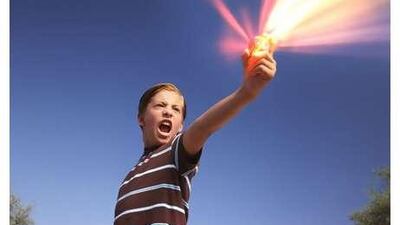ABU DHABI // Emirati film students will have the chance to learn their craft in Hollywood under an internship programme announced yesterday. Called Mawaheb, or "talents", it will be administerd by Imagenation Abu Dhabi and give aspiring filmmakers the opportunity to work in every aspect of the industry. There will be separate internships in the production and business end of the profession, each with four spots.
The interns will be placed with Imagenation's partners in the US, including Participant Media, National Geographic Films and Hyde Park Entertainment. The production internships will run for a month. "The motivation is to gain an international level of expertise," said Daniela Tully, the head of operations at Imagenation. The company is part of Abu Dhabi Media Company, which also publishes The National.
"They will get to experience a part of the pre-production. It will introduce them to everything," she said. That would include line producing, scheduling and budgeting "to the technical aspect of moviemaking, through to an introduction to the job of an art director and production designer to two days in props." The business internships will last three months, and cover development, budgeting, marketing and sales.
"It will make them aware of the script development process, including the business side and financial-planning side of it," said Ms Tully. The goal is to provide the business interns with a permanent job at Imagenation. The production interns will also be offered jobs within the UAE film industry. "They can transport their learning experience to Emirati productions," said Ms Tully. "They will learn from a major crew and have the best education you can get. Our plan is to have them pass their experience on to fellow Emiratis."
Applicants can be recent graduates in business, film or broadcasting, or young professionals already working in the media. The internships are scheduled to begin in September, and although the positions do not come with a salary, expenses will be covered. "The key to developing a sustainable film industry in the UAE is to nurture our homegrown talent," said Mohamed Khalaf al Mazrouei, the chairman of Imagenation Abu Dhabi.
"Our hope is that through our internship programme we can identify high-potential talent that can play a role in the future of film in this region." @Email:eharnan@thenational.ae

